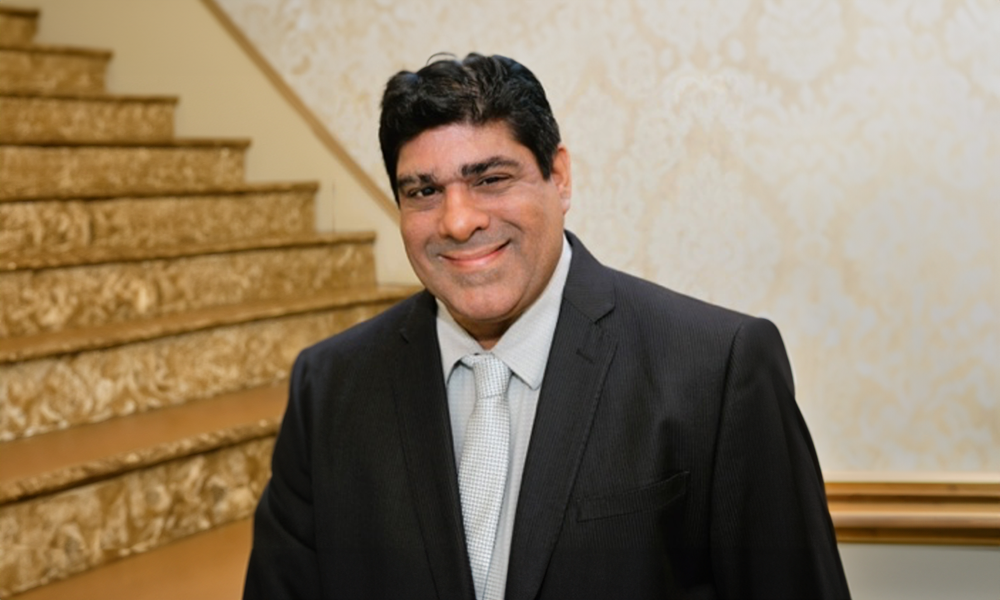More than half of adults in Massachusetts support impeaching President Donald Trump and removing him from office, according to the latest survey from the Western New England University Polling Institute.
The telephone survey of 439 adults, conducted Oct. 17 through Nov. 1, found that 57 percent back the House of Representatives approving articles of impeachment against the president and sending the case to the Senate for a trial, with 33 percent opposed, nine percent unsure, and one percent declining to answer.
When asked whether the Senate should vote to remove Trump from office, 54 percent endorsed removal, 37 percent were opposed, eight percent were unsure and one percent declined to respond. The sample has a margin of error of plus or minus five percentage points.
Views on impeaching and removing the president from office varied significantly by party, as one might expect. Among 405 self-identified registered voters in the sample, 85 percent of Democrats said they back impeachment and nine percent opposed the idea. Among unenrolled voters, 51 percent supported impeachment and 40 percent were opposed. Only 17 percent of Republicans backed the idea, while 80 percent of Republicans said they were opposed.
The party breakdown on removal from office followed a similar pattern, with 82 percent of Democrats in favor and 85 percent of Republicans opposed. Unenrolled voters were more closely divided on removal compared to impeachment, with 46 percent in favor and 45 percent opposed to removing the president from office.
News coverage of the impeachment proceedings is drawing the attention of a significant percentage of adults, according to the survey. Forty-two percent of adults said they were following news about impeachment very closely, and 36 percent said they were following the news somewhat closely. The numbers were slightly higher among the subsample of registered voters, with 47 percent following the news very closely and 36 percent following the news somewhat closely. Attention was highest among Republican voters, with 91 percent saying they were following the news very or somewhat closely, compared to 82 percent of Democrats and 84 percent of unenrolled voters.
Closely following the news also was related to support for impeachment and removal. Among adults who said they were following the news very or somewhat closely, 62 percent supported impeachment and 58 percent backed removing the president from office. Among survey respondents who said they were following the news not very closely or not at all closely, 43 percent endorsed impeachment, and 43 percent supported removing the president from office. Uncertainty was far higher among that group, with 24 percent indicating they were unsure about impeachment and 17 percent stating they were unsure about removing Trump from office. That compared to four percent unsure about impeachment and five percent unsure about removal from office among those who said they were following the news very or somewhat closely.
"It appears that there is a significant connection between following the news about impeachment and removal and believing that those steps are appropriate," said Dr. Tim Vercellotti, director of the Polling Institute and a professor of political science at Western New England University. "But we need to interpret the results with caution. While news coverage may convince some individuals to support impeachment and removal, it may also be the case that people who back those ideas are simply drawn to the news coverage to confirm their views."
Views on the process also varied by gender, age, and education level. Sixty-nine percent of women backed impeachment compared to 46 percent of men, and 67 percent of women supported removing the president from office compared to 42 percent of men.
Among survey respondents in the age range of 18 to 39, 67 percent endorsed impeachment, while the same was true for 46 percent of those ages 40 to 54, 55 percent for those ages 55 to 64, and 62 percent among respondents age 65 or older. Views on removing the president from office followed the same pattern, with totals a few percentage points lower in most age categories compared to opinions about impeachment.
Support for impeachment increased with education level. Among respondents with a high school education or less, 46 percent backed impeachment, compared to 62 percent for college graduates. Percentages backing removal from office were similar by education level, ranging from 52 percent for those with a high school education or less, compared to 56 percent among college graduates.
Although a majority of adults and registered voters said they support impeaching Trump and removing him from office, his job approval rating among Massachusetts voters was virtually unchanged from a year ago. In the latest survey 25 percent of voters said they approve of the job the president is doing, while 69 percent disapprove. A Polling Institute survey conducted in October 2018 also found that 25 percent of voters approved of the job the president was doing, while 68 percent disapproved.
Job approval ratings for other key political figures in Massachusetts showed only slight changes in the latest survey. Sixty-two percent of voters said they approve of the job that Charlie Baker is doing as governor, while 18 percent said they disapprove, compared to a 67 percent approval rating and a 15 percent disapproval rating a year ago. Fifty-three percent of voters said they approve of the job Elizabeth Warren is doing as United States senator, and 38 percent disapprove, compared to 55 percent approval and 33 percent disapproval a year ago. Forty-nine percent of voters said they approve of the job Ed Markey is doing as United States senator, and 26 percent disapprove. That compares to 53 percent approval and 21 percent disapproval in an Oct. 24 – Nov. 7, 2017 survey. Twenty-five percent of voters said they were unsure about Markey or declined to respond to the question, compared to 26 percent two years ago.
METHODOLOGY
The Western New England University Polling Institute conducted a telephone survey using live interviewers Oct. 17 Nov. 1, 2019. Western New England University sponsored and funded the study. The survey sample consists of telephone interviews in English only with 439 adults ages 18 and older drawn from across Massachusetts using random-digit-dialing of landlines and cell phones. The sample yielded 405 adults who said they are registered to vote in Massachusetts. Interviewers at the Polling Institute dialed household telephone numbers, known as “landline numbers,” and cell phone numbers using random samples obtained from Dynata of Shelton, CT. In order to draw a representative sample from the landline numbers, interviewers alternated asking for the youngest adult male or the youngest adult female age 18 or older who was home at the time of the call. Interviewers dialing cell phone numbers interviewed the respondent who answered the cell phone after confirming three things: (1) that the respondent was in a safe setting to complete the survey; (2) that the respondent was an adult age 18 or older; and (3) that the respondent was a resident of Massachusetts. The sample of all adults consisted of 161 interviews completed on landlines and 278 interviews completed on cell phones. The landline and cell phone data were combined and weighted to reflect the adult population of Massachusetts by gender, race, age, and county of residence using U.S. Census estimates for Massachusetts. The data also were weighted to adjust for cell phone and landline usage based on state-level estimates for Massachusetts from the National Center for Health Statistics.
All surveys are subject to sampling error, which is the expected probable difference between interviewing everyone in a population versus a scientific sampling drawn from that population. The margin of sampling error for a sample of 439 registered voters is +/- 5 percent at a 95 percent confidence interval, and the margin of sampling error for a sample of 405 registered voters is +/- 5 percent at a 95 percent confidence interval. Thus if 65 percent of registered voters said they approve of the job that Charlie Baker is doing as governor, one would be 95 percent sure that the true figure would be between 60 percent and 70 percent (65 percent +/- 5 percent) had all registered voters in Massachusetts been interviewed, rather than just a sample. Sampling error increases as the sample size decreases, so statements based on various population subgroups are subject to more error than are statements based on the total sample. Sampling error does not take into account other sources of variation inherent in public opinion studies, such as non-response, question wording, or context effects.
Established in 2005, the Western New England University Polling Institute conducts research on issues of importance to Massachusetts and the region. The Institute provides the University’s faculty and students with opportunities to participate in public opinion research. The Institute is a charter member of the Transparency Initiative, sponsored by the American Association for Public Opinion Research. The Transparency Initiative supports greater openness in the reporting of survey research methodology. Additional information about the Polling Institute is available from Dr. Tim Vercellotti, director of the Polling Institute, at polling@wne.edu.





